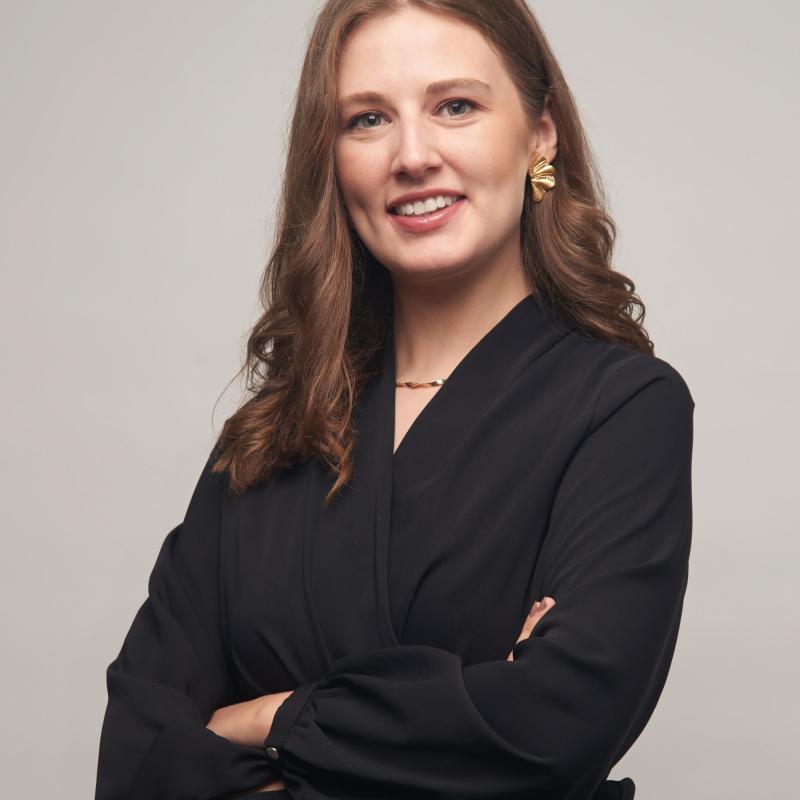Breadcrumb
Before joining the Master of Public Policy (MPP), Sylwia Lyskawka had already built a career combining science, policy and climate action.
A marine and water governance specialist from Poland, she founded the Climate Future Institute, served as the first climate and youth advisor to the Presidential Council in Poland, and contributed to national and international environmental policy – from coordinating Poland’s first formal climate education scenarios for schools to co-developing a joint EU–Africa roadmap on ocean protection.
Her motivation to study public policy came from a desire to connect scientific knowledge with policymaking. “My background is scientific, and I understand ocean science quite well. But when I started working in advisory roles, I had to collaborate with a right-wing conservative government – and climate is often perceived as something opposite on the political spectrum. But I realised that, in the end, we were talking about the same things – they also wanted to protect nature, just in different terms.”
She sees the MPP as an opportunity to understand policymaking more deeply. “I want to understand how people run governments, how they approach the role of the state, and how science connects with policy and politics. The evidence-based policy module in particular really appealed to me, because it links science and policymaking so closely.”
A month and a half into the programme, Sylwia says the experience has been “intense but great”.
“It’s amazing to have colleagues from all around the world. It makes every discussion more interesting. You realise that even though our countries are very different, we often face similar issues.”
One of the most striking aspects of her time at the School so far has been the openness of classroom discussions. “I was really struck by how we actually talk about different views,” she says. “In political philosophy, for example, when we discuss justice, there isn’t a right or wrong answer. Each perspective is valid. Considering how polarised the world is, and how difficult it can be to have a discussion, this is refreshing.”
She adds: “We learn that people approach life in different ways – it doesn’t mean some are good and others are bad. We just have to understand each other instead of arguing. The School doesn’t shy away from difficult conversations, and that’s so important today.”
Events at the School have been another highlight. “The Dean’s Forums are great,” she says – “the one with Jacinda Ardern particularly. She spoke to us like we were equals, and she was so inspiring. Her approach to kind leadership resonated with me – in today’s world, we need kind discussions.”
Financing her studies was also a story of perseverance and community support. Sylwia was successful in applying for the Blavatnik School scholarship, which offered her partial funding. Determined to make it to Oxford, she supplemented the rest of her fees with a crowdfunding campaign that raised around £8,000.
“I was initially afraid that no one would contribute – why would people invest in my education?”, she questioned. But when local newspapers shared her story, people connected with it. I had self-funded my earlier studies, working in restaurants to save money, and I was the first person from my hometown to get into one of the world’s best universities. People wanted to help me make that next step.”
“I think what resonated was that public policy education benefits everyone. It’s not just about me getting a better job – it’s about learning how to make better policies for Poland, especially in areas like water governance, which have been neglected for years.”
Looking ahead, Sylwia plans to continue her work in water governance and grow her think tank in Poland.
“The MPP is giving me a toolkit to look at these issues from a broader perspective."
"I also want to keep growing my think tank – that was part of my promise to those who supported me. Eventually, I hope to apply what I’ve learned here to strengthen policymaking back home.”
Her advice to other Polish students is clear: “From afar Oxford might feel very elite, and people might think it’s not for them. But the MPP looks at the whole person – not just grades. If you have vision and social impact, apply. I come from a small town, and I’m the first person from there to study here. I think everything is possible if you try.”

